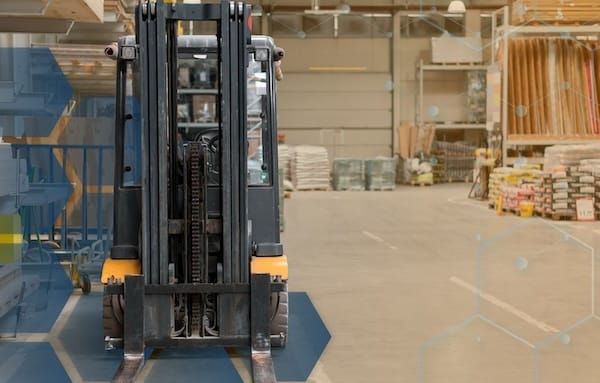- Warehouse Wisdom. Weekly.
- Posts
- Warehouse Wisdom. Weekly. 04/18/2025
Warehouse Wisdom. Weekly. 04/18/2025
Only the most relevant news for SMBs to improve logistics – picked, packed, and delivered without the bias.

Happy Friday!
American consumers have been busy this week—mainly panic-buying Temu chargers, Shein tops, flat-screen TVs, and the occasional sedan, all in an effort to beat the next round of tariffs. It's less “strategic stockpiling” and more “get it before it gets taxed.”
On the bright side, warehouse workers and truck drivers are finally seeing some upward movement in wages, which is great news—especially for the people actually moving all those impulse buys.
In this week’s issue, we’re unpacking the latest: Shein and Temu updates galore, a full-blown China–U.S. tariff war, bonded warehouses stepping into the spotlight, self-powered railcars trying to be a thing, and plenty more from the front lines of logistics. Let’s dive in.
Marketplaces
Temu tightens up, Shein warns of price increases, and eBay’s AI will write your listings

Shein and Temu, the reigning champions of low-cost retail, are warning customers that prices might rise. The cause? Potential changes to the de minimis rule, which currently lets ultra-low-cost imports glide into the U.S. without duties.
In a move as subtle as their homepage pop-ups are not, Temu has quietly pulled its U.S. Google Shopping ads. No press release, no grand explanation — just a quiet exit from one of the internet’s busiest marketplaces. Industry insiders suspect a mix of cost concerns and upcoming policy pressure. Turns out, blitzing the market with rock-bottom pricing and high ad spend isn’t quite as sustainable when someone starts doing the math.
eBay has unveiled an AI tool that helps sellers create listings in half the time. It fills in product details, writes item descriptions, and — if we’re lucky — won’t suggest you describe that old phone charger as “vintage tech.” For sellers, it’s a productivity boost. For everyone else, it’s a reminder that AI may not take your job, but it will happily automate your side hustle.
Zillow's Co-Founder Wishes They Did This Before The IPO
Spencer Rascoff co-founded Zillow, scaling it into a $16b real estate giant.
But everyday investors couldn’t invest until after the IPO, missing early gains.
"I wish we had done a round accessible to retail investors prior to Zillow's IPO," Spencer said.
Now he’s doing just that. Spencer has teamed up with another Zillow exec to launch Pacaso. Pacaso’s co-ownership marketplace is disrupting the $1.3t vacation home market. And unlike Zillow, you can invest in Pacaso as a private company.
With $100m+ in gross profits and rapid international expansion, Pacaso is scaling fast. Investors like SoftBank, Maveron, and more are already on board. Join them as a Pacaso shareholder.
Paid advertisement for Pacaso’s Regulation A offering. Read the offering circular at invest.pacaso.com. There’s no guarantee that Pacaso will file for an IPO.
Global Logistics
Tariffs, cancellations, and a shipping slowdown

The White House has announced that certain Chinese imports are now facing tariffs as high as 245%. Yes, you read that right — 245%. The strategy is to solve trade imbalances. If your sourcing strategy still includes “low cost from China,” it might be time for a backup plan. Or two. Furthermore, the trade war is heartin up as Hong Kong Post is suspending all postal services to the U.S., citing "operational difficulties."
U.S. exporters are reporting a spike in canceled orders from Chinese buyers as well. Between tariffs, tension, and an increasingly frosty trade climate, Chinese importers are backing away from U.S. goods like someone slowly putting down a hot potato.
Several major brands have paused shipments from China, at least for now. Ocean bookings into ports like LA are being slashed as companies reassess whether paying triple-digit tariffs is worth it. Short version: if you were relying on steady import flows from China, don’t.
Bookings for global ocean container freight have also taken a sharp dive. No surprise there—when your shipping lanes are tangled in tariff drama and political theater, it tends to dampen demand. The volume drop isn't just a blip; it's a full-on slump. So, if your inbox is suspiciously quiet, it’s not you. It’s everyone.
While most eyes are on China, transportation costs are quietly climbing at the U.S.-Mexico border. Tariff uncertainty is making shippers nervous, and that nervousness comes with a price tag. Carriers are padding rates, brokers are hedging, and your freight bill is suddenly looking more like a luxury receipt.
Even as bookings tank, ocean freight rates from China to the U.S. just jumped 10%. Blame it on carriers trying to preempt the chaos or a classic case of “let’s raise rates while we still can.” Either way, it’s another cost pressure in a supply chain that didn’t exactly need one more problem this week.
Logistics Vitals
Online sales jump as shoppers embrace pre-tariff panic buying

Online retail sales in March 2025 showed modest month-over-month growth but significant year-over-year gains, as consumers continued to shop online amid tariff concerns.
Online and other non-store retail sales increased by 1.4% in March compared to February.
Year-over-year, first quarter online retail sales grew by 4.1%.
Total retail sales in March rose 4.6% year-over-year to $734.87 billion.
46% of U.S. consumers reported stocking up on items in March due to concerns over potential price increases from tariffs.
Freight and Shipping
UPS throws shade at gig drivers, then adds a fee for good measure

In a newly released white paper, UPS politely (but firmly) questioned the rise of gig-based last-mile delivery services. The report suggests that handing your package to someone with zero training, minimal vetting, and a trunk full of other people’s bubble mailers might not be the gold standard in logistics. But, take it with a grain of salt and consider the source…
FedEx and UPS to Shippers: Surprise Fees Are Back FedEx and UPS are reinstating surcharges on shipments from China to the U.S., citing the rising costs linked to changes in the de minimis rule.
Warehouse Space and Tech
Warehouses are in, FTZs are hot, and even railcars are trying to drive themselves

U.S. warehouses are suddenly the cool kids at the trade war party. As importers scramble to dodge tariffs, domestic storage is seeing a surge, thanks to loopholes that reward creative routing and delayed customs declarations. Foreign Trade Zones (FTZs) are suddenly hot. Importers are piling into these duty-deferral zones in an attempt to make the most out of a very not-great situation. It’s a good time to be in warehousing—if you’ve got space, someone wants it. Probably yesterday.
According to Prologis, the same international chaos tanking global confidence is also not necessarily gonig to negatively impact U.S. warehouse demand. They’re still anticipating a rise in leasing activity as shippers pivot toward domestic inventory strategies.
But despite the bullish headlines, some investors and analysts are raising an eyebrow at just how enthusiastic warehouse operators are acting. Prologis is sticking to its 2025 outlook, but customers are moving a little slower and asking a few more questions—probably along the lines of, “Do we really need 100,000 sq. ft. or just the feeling of control in a chaotic world?”
Parallel Systems has landed $38 million in funding to develop autonomous, battery-powered railcars. The idea? Trains that don’t need a train. In theory, they’ll run more efficiently and cut emissions. In practice, they’ll join the long line of technologies “poised to revolutionize freight” but currently stuck in a pitch deck.
C.H. Robinson is rolling out AI agents to streamline operations and reduce manual tasks—think quoting, scheduling, and responding to emails you didn't want to answer anyway. Early signs suggest it’s actually working. So, if your logistics contact suddenly replies in perfect grammar and record time, don’t worry. They’ve just been upgraded.
Warehouse Quick Deliveries
Alphabet enters the supply chain chat and e-commerce in the U.S. feels the pinch
Alphabet's Chorus set to disrupt the global supply chain..
Will the tariffs save U.S. e-commerce?
“We’ve had nice sales since March, and saw some hoarding in recent weeks, such as customers buying 15 sets of the same makeup tool at one time. I haven’t seen that before.”

